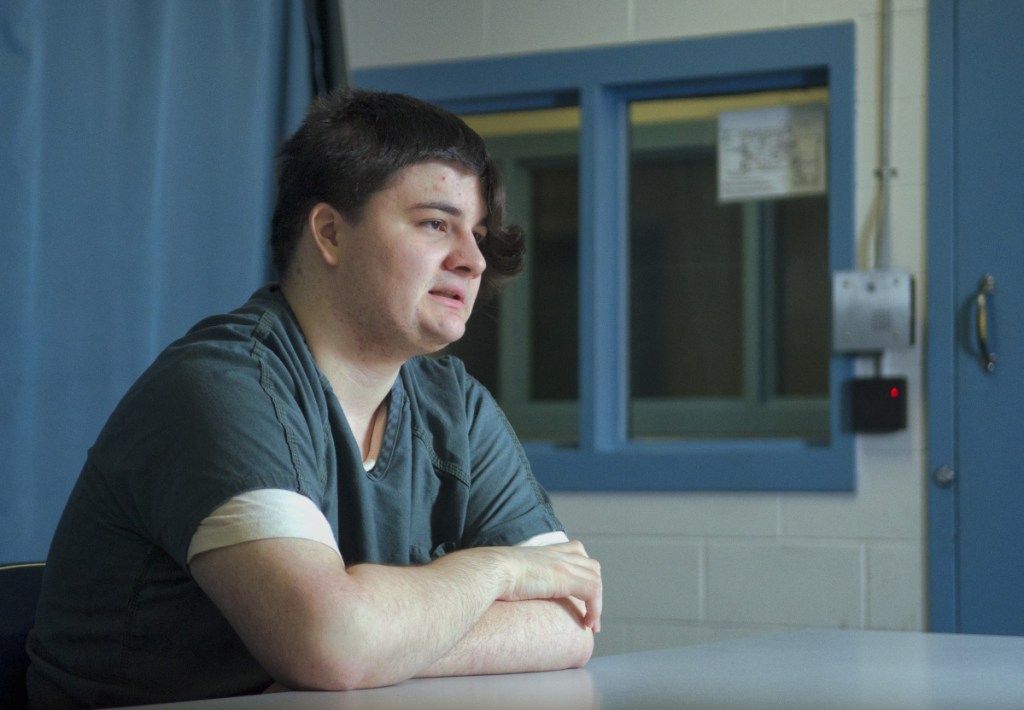AUGUSTA — A Maine superior court justice has thrown out an attempt by the attorney general’s office to compel the Kennebec Journal to provide unedited video of a recent jailhouse interview with Andrew Balcer, who has pleaded guilty to murdering his parents, Antonio and Alice, on Halloween morning two years ago.
Balcer, 19, who now identifies as a female and indicates a preference for being called “Andrea,” has admitted to killing her parents and the family dog during the early morning hours of Oct. 31, 2016, in their Winthrop home.
In an exclusive video-recorded interview with the Kennebec Journal from the county jail on Sept. 14, Balcer expressed remorse for the killings — saying she snapped and would “take it all back” — even as she raised new allegations of sexual molestation at the hands of Balcer’s mother and physical and mental abuse by Balcer’s father, while again pointing to her gender identity crisis at the time as a factor. Balcer’s comments to the newspaper, made five days before pleading guilty to the murders, were an apparent preview of arguments aimed at seeking leniency for a prison sentence.
After Balcer’s plea hearing, the state attorney general’s office sent a subpoena to the Kennebec Journal seeking “any and all broadcast footage and raw video and/or audio recordings of Andrew Balcer.” The newspaper had posted a 13-minute edited version of the interview online. The jail took video, but not audio, of the interview.
The newspaper, represented by the law firm Preti Flaherty Beliveau & Pachios, filed a motion to quash the subpoena, arguing that the attorney general’s office failed to follow the rule for a subpoena for material that “may be protected from disclosure by a privilege” and did not seek prior court approval for its request. The newspaper also argued that unpublished news materials are protected by the journalist’s privilege and that the state’s request was “a fishing expedition” for evidence that could be used at Balcer’s sentencing hearing that could have a chilling effect on news-gathering efforts.
The state later argued in response court filings that claims Balcer made during the interview might have been inconsistent with earlier statements, and therefore relevant information to consider at the sentencing. The state described the interview as Balcer “giving his self-serving story about how and why he killed his parents and his dog.”
Ultimately, Superior Court Justice Daniel L. Billings ruled that the attorney general’s office failed to follow the procedure required by rule requiring that the state seek approval before serving a subpoena.
“This ruling establishes an important bulwark against subpoenas now and in the future,” said Sigmund Schutz, an attorney from the law firm representing the newspaper.
Billings told Balcer at the recent plea hearing that the attorneys have agreed to an overall sentence of a minimum of 25 years in prison, with a cap of 55 years.
Balcer is scheduled to be sentenced Dec. 4 at the Capital Judicial Center.
Comments are not available on this story. about why we allow commenting on some stories and not on others.
Send questions/comments to the editors.


